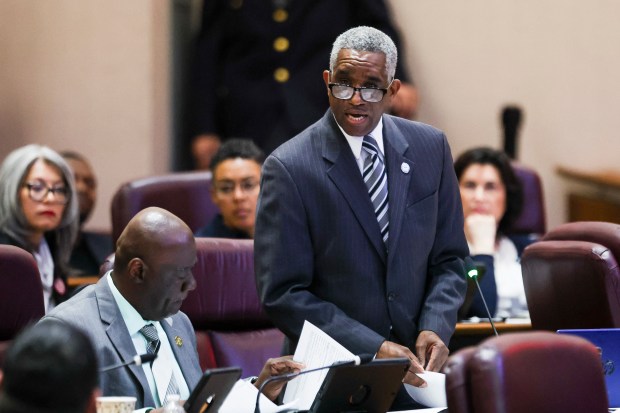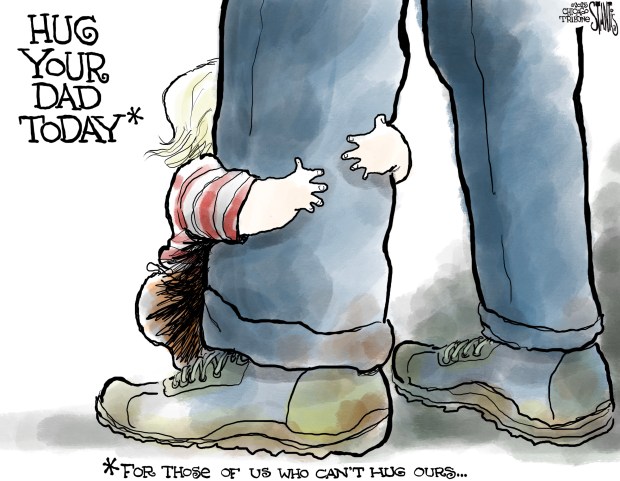There now is no question that Chicago needs the gunfire detection technology known as ShotSpotter.
We sympathize with those who wish this financially strapped city did not have use for an expensive system designed to get police officers more quickly to a bloody scene on its streets. We dearly wish the same. But the data is clear. Need it we do. To remove it will cost the lives of Chicagoans.
Back in May, we noted that whatever arguments had been made against ShotSpotter as a tool to catch and arrest violent criminals were ignoring something yet more important: the technology’s ability to get help quickly for shooting victims, including those rapidly bleeding to death. In an ideal city, people would call 911 and emergency workers would rush immediately to the scene; heck, in an ideal city, those scenes would never materialize in the first place. But we do not inhabit such a halcyon place. In the here and now, those scenes play out every weekend.
On Thursday, this newspaper published an op-ed piece by researchers from the University of Chicago’s Crime Lab using new data from their work in the field. The conclusion? ShotSpotter saves lives.
When Joe Ferguson, then the city’s inspector general, wrote a 2021 report on the Chicago Police Department’s use of ShotSpotter, he rightly made the point that more data was needed. On Thursday, we published more data.
The Crime Lab methodology looked at the differences between what happened at shooting scenes right at the boundaries of adjoining police districts — those that have ShotSpotter and those that do not. The idea was to capture as much of a like environment as possible. Districts have to be divided somewhere and if you look right at where they meet, then other demographic and socioeconomic factors are far less likely to come into play; researchers in other fields, such as education, use the same technique.
What did the University of Chicago researchers find? “After ShotSpotter goes live, fatality rates are about 4 percentage points lower in the areas with the technology. With an overall fatality rate of 17%, this is about a one-quarter drop in the odds the victim dies.”
And if that were not persuasive enough? “Given the number of shootings each year in the police districts that currently have ShotSpotter, there is, roughly speaking, a 3-in-4 chance that the technology saves about 85 lives per year. That comes from multiplying a 4-percentage-point change in the fatality rate by the total number of shootings in the ShotSpotter areas, equal to 2,124 in 2023.”
That’s written in hedged data speak, not the kind of fevered political debate you might find on the floor of the City Council. But only a fool cannot see that makes for determinative evidence that ShotSpotter saves a lot of lives by getting help to victims sooner.
Young lives, too. We all know the preponderance of young people involved in these incidents. Is it worth a city with an annual budget of more than $16 billion spending $10 million (or 0.0625%) to reliably save the lives of 85 of its citizens? Darn right it is, especially if you factor in the ancillary benefit of also being more likely to catch some of those doing the shootings and then getting them off the streets.
Reportedly, Ald. David Moore, 17th, plans to use a parliamentary maneuver at the coming week’s City Council meeting to give police Superintendent Larry Snelling the power to extend Chicago’s contract with ShotSpotter. The aim is to force a vote on an ordinance Moore introduced this summer and that has currently gone nowhere. He has significant support, as the Tribune has reported. Ald. Desmon Yancy, 5th, put it succinctly and well: “I don’t understand what we are going to do if we are not going to protect the people that live here.”
That is indeed job one for any public official. Yancy’s colleagues should listen carefully.
As things stand now, ShotSpotter is be phased out in a matter of days at the direction of Mayor Brandon Johnson.
So this is, to say the least, the eleventh hour for those 85 lives.
We’d like to respectfully suggest to the mayor that the data we published Thursday falls in the category of new information and is as unbiased as data ever can be. It offers him political cover. His office could announce that he has read this new finding from our city’s great university and, in the light thereof, has decided to revise what he said during his campaign and during his first months in office. He would not be breaking a promise so much as acknowledging that circumstances had changed, that the main benefits of ShotSpotter had proved to be different from where everybody previously was focused.
ShotSpotter’s continued employment would not mean that other public safety initiatives, including attention to the root causes of crime, could not proceed.
We think he’d get a lot of support from ordinary Chicagoans, never mind aldermen, for such a courageous stand.
And he could go to sleep that night knowing the decision probably saved the lives of 85 Chicagoans, if not more.
Who cares about the political consequences in light of that?
Submit a letter, of no more than 400 words, to the editor here or email letters@chicagotribune.com.





